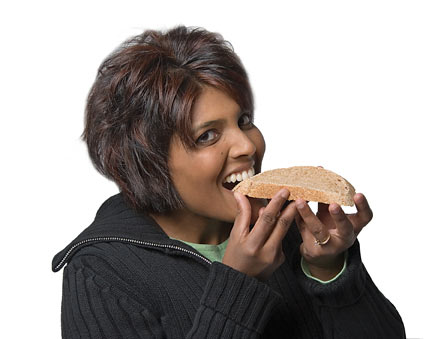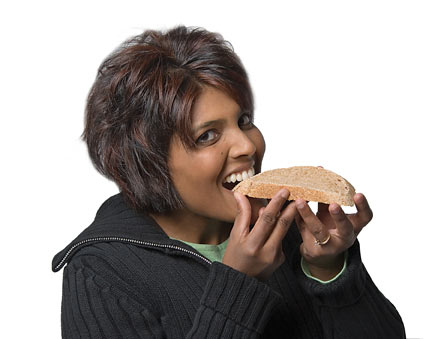
A healthy reaction to eating carbohydrate is a rise in blood glucose which then causes insulin to be released. The insulin then acts as a key which opens up cells to let glucose in to be either used as an immediate source of energy or signals the glucose to be stored in the muscles and liver or as fat.
If you are a diabetic, you’ll experience a rise in blood glucose but either insulin is not released (Type 1) or the insulin is either no longer as efficient at unlocking the cells to let glucose in and is produced in smaller amounts (Type 2). Both responses allow blood sugars to rise to a dangerous level. This is why Diabetics must control how much carbohydrate, or glucose source, they put into their body throughout the day.
How Do I manage Diabetes?
Never eliminate, just control the amount of carbohydrates you are eating during the day. Your body still needs and uses carbohydrates as its preferred source of energy.
What Types of Foods are Carbohydrates and How Much Should I Eat?
Carbohydrate foods include: dairy, fruits, juice, and starches like grains, cereals, rice, legumes, and some vegetables like peas, potatoes and corn.
Use nutrition labels to look at the “Total Carbohydrate” grams for calculating carbohydrate servings. Just remember that 1 carbohydrate serving = 15 grams of carbohydrate.
If you want to fine tune your carbohydrate counting you can subtract half of the fiber grams from the total carbohydrate if there is at least 5 grams of fiber per serving. For example, a food with 20 grams of carbohydrate and 8 grams of fiber would come out to 16 grams of carbohydrate
Strive to consume carbohydrates from whole unprocessed sources to achieve the most nutrients and antioxidants. Whole grains and cereals, fresh or frozen fruits and veggies, starches such as baked sweet potatoes or legumes, and low fat or fat free dairy are great options.
Consult with a dietitian, certified diabetes educator, or doctor to find what fits your particular needs.
Keep it Consistent
Eat your meals every 4-5 hours.You may need work a light snack in between to prevent low blood sugar.

Always eat breakfast!
Eat a variety of different foods every day including fresh fruits, vegetables, whole grains, lean protein, and low fat dairy to get a full spectrum of nutrients!
Focus on high fiber as it delays gastric emptying, preventing spikes in blood sugar. Try focusing on whole grains such as our High Five Fiber bread or oatmeal and even produce to achieve nutrient dense sources of carbohydrates.
You should be getting about 14 grams of fiber per 1000 calories.
Want to learn more abou diabetes and carbohydrates?





